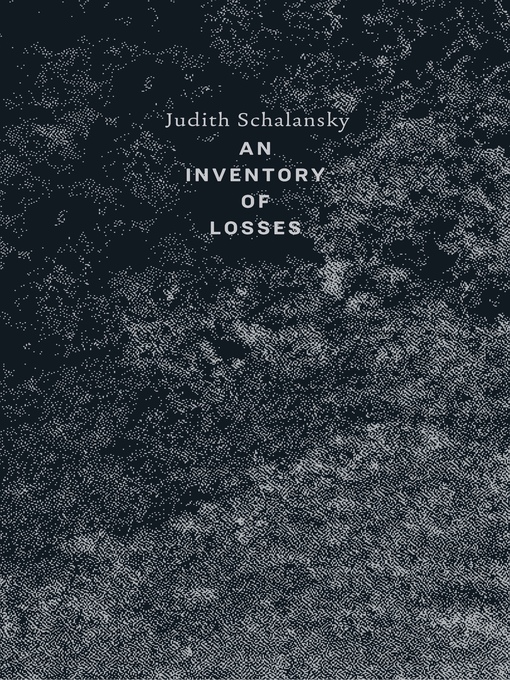-

Starred review from April 15, 2020
Objects, animals, and places that no longer exist, except in our collective imagination. Schalansky's fifth book is a collection of beautifully constructed stories about objects that have not survived the test of time. "Being alive means experiencing loss," Schalansky writes, and the world has experienced much loss. Animals, people, and places that once existed are now only memories due to inevitable decay, colonialism, the cleansing of records, and natural disasters. While in Schalansky's previous book, Atlas of Remote Islands (2010), she wrote of remote havens that remain difficult to reach even with modern travel, here she depicts the animals, people, and places that are only known through what details have been recorded or remembered. From fragments of Sappho's poems to a submerged South Pacific island, from the extinct Caspian tiger to the lost films of Friedrich Wilhelm Murnau, Schalansky brings us to the fantastical worlds of gladiator rings in ancient Rome, the ruins of a 19th-century German palace, and the surface of the moon. Tying the stories together are Schalansky's evocative, precise descriptions and the sense of wonder in confronting the sheer immensity of what has been lost. "The world...only grieves for what it knows," she writes. Schalansky documents her chosen objects with utmost care while relying on myth as she moves beyond what we know for fact to what we might imagine. "For myth is the highest of all realities and...the library the true theater of world events." Schalansky's meticulously researched stories are poignant reminders of the extent of our impact on the natural world and a call to honor the animals, objects, and places that, due to our own negligence, have ceased to exist. An exploration of extinct animals and objects told through dazzling stories that question the bounds of memory and myth.
COPYRIGHT(2020) Kirkus Reviews, ALL RIGHTS RESERVED.
-

Starred review from June 1, 2020
Twelve fictional essays comprise this stunning work depicting animals, places, objects, and buildings that are lost forever. In one chapter, the extinct Caspian tiger is imagined as both predator and victim in a fight to the death in the Roman Colosseum. Another chapter relates the story of the cobbled-together skeleton of a unicorn "discovered" by Otto von Guericke in a gypsum quarry. Elsewhere, marital infidelity is key to a remembrance of the East German Palace of the Republic. In this smooth and expert translation, internationally best-selling author Schalansky (The Giraffe's Neck) illuminates these "lost" inventoried gems with thorough research and details, making us ponder their transitory quality. Her descriptive writing of nature and botanical subjects is particularly accomplished. Indexes of persons, images, and sources are included. VERDICT In her quest to find meaning for herself, Schalansky examines life and death in a work that will inspire many hours of talk for book discussion groups. Not to be read quickly but savored and contemplated.--Lisa Rohrbaugh, Leetonia Community P.L., OH
Copyright 2020 Library Journal, LLC Used with permission.
-

Starred review from June 8, 2020
Schalansky’s inspired latest (after Atlas of Remote Islands) melds history, memoir, and fiction into something new and extraordinary: a museum of the extinct, the missing, and the forgotten. Chronicled in 12 short pieces, each based on a “lost” object—among them an early-20th-century film, fragments of Sappho’s poetry, destroyed Italian villas, demolished East German government buildings—the narratives are distinct, memorable, and, at their best, spellbinding. Some are highly researched, meticulously reconstructing historical places such as the the Villa Sacchetti at Castelfusano in Rome and figures such as 18th-century British explorer James Cook, who, in search of a then-mythical southern continent, “had ploughed the southern seas in huge, sweeping zigzags and discovered nothing but mountains of ice.” Other tales take on the flavor of impressionistic, contemporary memoirs, rooted in the narrative of a Schalansky-like writer-researcher as she explores the topic at hand. Still others have the feel of speculative fiction, so detailed in their histories that they feel like memories. In one, wild animals are brought to fight one another before the massive audiences of Rome; another follows the moments, both dramatic and mundane, of a day in the life of an East German couple. With this collection of illuminating meditations on fact and fiction, Schalansky cements her reputation as a peerless chronicler of the fabulous, the faraway, and the forgotten.
-
Michael Cronin;Irish Times
It is hard to imagine a better guide to the resources of hope than Schalansky's deeply engaging inventory.
-
Library Journal (starred)
Twelve fictional essays comprise this stunning work depicting animals, places, objects, and buildings that are lost forever... Not to be read quickly but savored and contemplated.
-
Los Angeles Review of Books
Schalansky treats each of the 12 objects cataloged in her new book with an almost religious awe, like a believer giving herself up to be inhabited by spirits.
-
Kate Zambreno;New York Times
Brilliant....an ambulatory and often playful meditation on history and forgetting.
-
Publishers Weekly (starred)
Schalansky cements her reputation as a peerless chronicler of the fabulous, the faraway, and the forgotten.
-
Francesa Wade;The Baffler
In rich, evocative, precise prose—beautifully translated from the German by Jackie Smith—Schalansky recalls these lost things and meditates on their destruction, all the while interrogating the extent to which memory—or writing—can compensate for material loss.
-
John Self;The Guardian
A fine example of everyone's favourite genre: the genre-defying book, inspired by history, filtered through imagination and finished with a jeweller's eye for detail.
-
The Telegraph
In each case Schalansky has alighted on fascinating material, and her delicately poetic turn of phrase is evident on every page.
-
The White Review
Instead of a requiem for what is gone, Schalansky sings a dirge for what remains.
-
Wall Street Journal
The translation from the German by Jackie Smith...is a triumph of subtle accuracy.
-
Kirkus (starred)
An exploration of extinct animals and objects told through dazzling stories that question the bounds of memory and myth.
-
Anthony Doerr
A celebration of what can still be accomplished with imagination, paper. and ink.
-
Robert Macfarlane
Exquisite. Like the hero of Joris-Karl Huysmans's novel A Rebours, who sets off for London from Paris but realizes he need go no further than the Gare du Nord, Schalansky decides to make a virtue of absence.
-
Rosmarie Waldrop
Utterly fascinating.
-
Sam Sacks;Wall Street Journal
Disappearance may be a forlorn theme, but it has rarely been granted such reverent contemplation, or been made to feel so powerfully tangible.
-
Audrey Wollen;Bookforum
Judith Schalansky's An Inventory of Losses and Maria Stepanova's In Memory of Memory are both trying to pin down echoes and build from dust.







